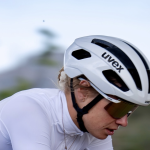As the sky was falling on Wall Street, several industry companies remained cool, calm and collected as they spoke about their own businesses at investor conferences last week. Notably, the Bank of America Securities annual investment conference drew management from Genesco, Fortune Brands and others, while the CL King investment conference hosted Wolverine. At Scotia Banks Back-to-School Conference, two Canadian companies said there were no signs that worsening economic news was affecting their business and projected solid growth for the balance of the year and into 2009.
Shi by Journeys has not yet reached the level of performance necessary to roll out the chain more aggressively, but a new focus on athletics and higher-priced brands appears to be working, according to management at Genesco, Inc.
“Were still not happy with the financial performance of this business,” said Genesco, Inc. President and CEO Bob Dennis at C.L. King’s investment conference, when discussing the chain, which targets a slightly older female customer than Journeys. “It hasnt reached our pro-forma criteria yet. But we also recognize that we dont have the assortment where we now know it needs to be, which is more athletic and higher-priced.”
Shi, launched in November 2005, is both adding a deeper assortment of athletic product and also bringing in a greater amount of brands commanding a higher-price point. The remerchandising resulted in an 8% gain in average selling prices during the second quarter. Comps were up 3%.
But Dennis noted that brand extensions take time. As a comparison, he noted that Journeys Kidz, launched in 2001, didnt qualify as a success until fiscal 2006. Since then, the kids concept has been expanded rapidly.
“All of a sudden, the sales per square foot and the economics afforded the roll out,” said Dennis. “This is meaningful for us because of the time it takes to get a concept right. It’s not really measured in months, but in years. So as we think about a concept like Shi, were looking at it with the same eye. We now have 60 Shi stores and were not going to get into this ramp up with Shi until were comfortable we have the economics that justify it.”
Looking to other concepts, Journeys is expected to have a strong second half as it faces easy comparisons due to the implosion of the Heelys trend last year. The skate category, according to Dennis, continues to be “very strong” for the chain, and he expects a “very good boot season,” led by Ugg. Another encouraging sign is that average selling prices were up 2% in the second quarter, reversing a five-year declining trend. Journeys Kidz is also expected to benefit even more as it anniversaries the Heelys issue.
At Underground Station, the concept shifted to a 50/50 men’s/women’s business from a men’s footwear business after Nike pulled out of the chain. Dennis expects break-even results for the chain this year. Hat World also felt a shift in the market away from hip-hop oriented headwear, but that business has been replaced by a strong trend toward many of the same action sports brands that Journeys carries. “Were excited about what’s gong on there,” said Dennis. Hat World is also exploring more sales to the team dealer channel.
Despite the progress at many chains, Dennis noted that operating margins remain at around 5.5%, about the same as last year, but well off the 8% or 9% rate achieved in FY04, FY05 and FY06. An improving comp trend will be required to lift operating margins back to those levels. Dennis noted that most of the chains are showing modest gains this year against negative comps in 2007, and the company is aiming for low-single-digit gains for the rest of the year. “So well need a bit of rebound on buying,” said Dennis.
Fortune Brands Sees Golf Growing Internationally
At the Bank of America Securities annual investment conference, Fortune Brands said its golf business, which includes Titleist, Cobra and FootJoy, is seeing its strongest gains internationally, including “very fast-paced” gains in Japan, Korea and other Asian markets.
“The golf courses are being built, the teaching facilities are coming online and we are investing behind all that right now,” said Bruce Carbonari, president and CEO of Fortune Brands. “That is a very potent growth engine for this business. And with our brands and the strength of our brands and our innovation and performance equation, we think we can have great success there.”
Regarding product, Carbonari said he believes the company has “the hottest club out there,” pointing to the AP1 and AP2 irons. Acushnet Co., its golf subsidiary, will also soon introduce the 909 series in early to mid-November. “Weve come out with a lot of new innovation on the shoe side as well,” said Carbonari. “So we continue to drive that business through new products and performance enhancement products as well as investing behind business, especially in Asia and somewhat in the Europe side of the business.”
Carbonari didnt mention the current performance of the U.S. golf business, which has recently been weak. Overall second quarter earnings at Acushnet Co., its golf subsidiary, decreased 4.7% to $452.4 million; operating income dropped 23.1% to $68.1 million. Longer term, however, he said golf trends look strong.
“Baby boomers are aging and will be retiring and it’s a proven fact that there’s more rounds of play when people retire,” said Carbonari.
Despite some concerns after the Merrell brand showed a single-digit growth rate in the second quarter, Wolverine still expects Merrell will eventually become the company’s first brand to reach sales of $1 billion.
“We still firmly believe Merrell is gong to be our first billion dollar brand,” said Blake Krueger, president and CEO of Wolverine Worldwide, at the CL King investment conference. “As it’s gone from $26 million in sales to well over $450 million in sales, we are now entering the land of large numbers. We had a single-digit growth rate in Merrell in Q2, but we continue to feel very, very bullish about that brand as it extends across product categories, enters new regions and just seeing the sell-throughs that happened this summer and fall.”
But Krueger said in order for Merrell to become a billion dollar brand, apparel, which was launched three seasons ago, needs to continue to successfully expand. International distributors have long demanded a greater assortment of apparel because the stores need apparel to complement footwear offerings. Although apparel remains a “small business,” its continued expansion is “really gong to be the lever to help us open stand-alone stores around the world.”
Regarding footwear, newer lines seeing strength are women’s water sport, women’s casual sandals and street running shoes. Running specialty stores, many of which already carried some of Merrell’s multi-sport hiking and jungle moc collections, are showing a “good reaction” to the new running line.
Merrell now has 675 in-store shops worldwide. Those shops, typically in better stores, led to gains between 20% and 200%. The company has about 50 Merrell stand-alone stores around the world, and the opening of its first flagship in San Francisco last week “exceeded our expectations,” said Krueger.
Regarding Patagonia footwear, which Wolverine launched in 2006, Krueger said the key to growing the brand is through Patagonia’s consumer-direct business, noting that about 50% of Patagonia’s apparel is sold through Patagonia’s owned-retail channels. Patagonia sends out about 7 million catalogs annually, has “a great Internet business,” and operates about 27 stores, according to Krueger.
Gildan Activewear Inc. has grown its market share of 100% cotton blanks for the screen printing market from 10% to 60% since going public in 1998 and is now targeting 70% of the market, the companys president and CEO Glenn Chamandy told investors at the Scotia Bank Back to School conference last week. Chamandy said that while the market is growing 6% a year, Gildans business is growing 19%, including 30% growth in Europe.
Fellow Canadian manufacturer Dorel Industries Inc. has begun distributing its GT and Sugoi cycling brands through Cannondale Bicycle Corp.s distribution center in the Netherlands. Cannondale Sports Group has also formed an advanced product division to focus on breakthrough technology, advance materials and design and manufacturing methods to advance bicycle development, said President and CEO Martin Schwartz.
Dorel has been able to pass on increased input costs to retailers and “for the most part,” demand for Dorel products-which include baby products like car seats and ready-to-assemble furniture – has been unaffected by recent economic developments, he said. In Europe, where Dorel remains a small player, sales are up year-to-date, but its too early to tell how slowing economic growth will affect bike sale.















